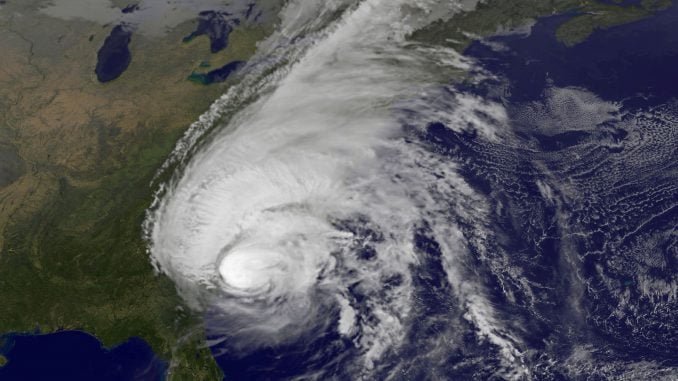
COLLEGE PARK, M.D. – U.S. weather forecasters on Thursday predicted more tropical storms than normal for the 2017 Atlantic hurricane season, which last year brought one of the deadliest recorded storm systems, killing several hundred people and causing $10 billion in damage.Meteorologists with the National Oceanic and Atmospheric Administration’s Climate Prediction Center said there was a 70 percent chance of seeing between 11 and 17 named tropical storms this season, which begins on June 1 and runs for six months.”There is a potential for a lot of storm activity this year,” Ben Friedman, acting NOAA administrator, said at a press conference in Maryland.Five to nine of the storms could become hurricanes, with winds of 74 miles per hour or higher, including two to four major hurricanes, with winds of at least 111 miles per hour, Friedman said.The Atlantic hurricane region includes the whole North Atlantic Ocean, Caribbean Sea and Gulf of Mexico, said Gerry Bell, a NOAA hurricane climate specialist. U.S. residents along the Gulf Coast and Atlantic Coast could be affected by the hurricane season, as well as Mexico and the nations surrounding the Caribbean Sea.The figures for 2017 are higher than last year’s prediction of 10 to 16 storms, with four to eight likely to become hurricanes.Based on thirty years of data, the United States experiences an average of 12 named tropical eastern storms each year, with about 3 storms escalating to greater than or equal to a Category 3.According to Alex Zarnowski, a meteorologist for the N.C. Department of Environmental Quality, two major factors may affect the upcoming season: the possibility of returning El Nino conditions, and the amount of dry air transported into the Atlantic from winds blowing from east to west across the Saharan Desert in Africa.”There are many more factors that will ultimately determine how active the season will be but, regardless of the forecast North Carolinians need to be prepared for the worst when it comes to hurricanes,” said Zarnowski. “Everyone in North Carolina should have a hurricane plan and supplies ready for any upcoming season.”National forecasters are expected to deploy more sophisticated tools this season to accurately track and predict the intensity of storms. But Friedman warned residents, especially in coastal areas, to get ready ahead of time.”We cannot stop hurricanes, but we can prepare for them,” Friedman echoed.Last October, Hurricane Matthew killed hundreds of people when it hit the Caribbean and United States, including 22 confirmed deaths in North Carolina. The storm caused billions of dollars of damage, making it one of the deadliest and most costly in N.C. history.Reuters News Service contributed to this article.




